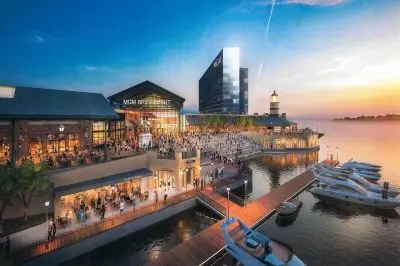 Final approval may have been provided by the Federal Government for the satellite tribal casino in East Windsor, but unfortunately, this does not mean that the debate over gambling in the state of Connecticut has been brought to an end.
Final approval may have been provided by the Federal Government for the satellite tribal casino in East Windsor, but unfortunately, this does not mean that the debate over gambling in the state of Connecticut has been brought to an end.
Now, about three months into his tenure, Governor Ned Lamont is still facing the challenge to negotiate a gambling agreement which is in line with the states revenue-sharing agreements with the two Indian tribal nations – the Mohegans and the Mashantucket Pequots. The agreement also includes other forms of gambling, such as sports betting.
According to media reports, the Governor met privately at his residence with representatives of the two tribes in January, and with representatives of MGM Resorts in February. For the time being, the casino operator remains interested in building a Bridgeport casino and start offering sports betting. MGM Resorts has also challenged the deal under which only the two aforementioned tribes are permitted to build and operate a casino venue which is not on reservation land.
The two Indian tribes formed a joint venture and claimed they need the casino in East Windsor to help them consolidate their positions as gambling operators and respond to the competition from the new casino facility of MGM in Springfield, Massachusetts. According to the two nations, it would help them save jobs at the Foxwoods Resort Casino and the Mohegan Sun, which according to the operators have been suffering due to the rivalry of the Springfield-based casino of MGM.
It still remains unclear when the East Windsor-located Tribal Winds Casino might start operation, The site for the facility has been purchased and cleared, with about $14 million being spent so far.
Tribal Casino Project in East Windsor Faces MGM Resorts’ Competition
 Last week the Department of Interior confirmed that the proposed amendments to the two tribal agreements had finally been given the green light after a lengthy consideration process. The approval provides the operator to go ahead with its planned casino.
Last week the Department of Interior confirmed that the proposed amendments to the two tribal agreements had finally been given the green light after a lengthy consideration process. The approval provides the operator to go ahead with its planned casino.
For the time being, the Mashantucket Pequot and Mohegan tribes provide the state of Connecticut with 25% of their slot-machine revenues in exchange for the exclusive rights to offer certain forms of gambling in their tribal casinos.
Governor Lamont has also confirmed that the had meetings with a number of sports-betting operators to respond to these operators’ attempt to take a piece of the potential sports betting sector. The Governor is set to further address some other gambling issues and at the same time take steps to avoid expensive litigation for Connecticut.
This, however, could be a hard task for him, especially considering the fact that MGM Resorts issued a statement claiming that the operator is to pursue all legal options, including court action, to challenge the exclusive gambling rights of the two Indian tribes and defend its right to offer its services in the state of Connecticut. If such litigation is given a start, it would not be the first one for the company. Back in 2015, MGM Resorts filed a similar lawsuit which eventually got dismissed by the court.